My entirely-too-generous teachum from Singapore, Keng, provided both of the teas for today's article.
First, timely for the year in which it was made, the 2012 "Tengshengshi Long" from Yangpinhao.
With some amusement, I notice that the name "Tengshengshi" absolutely disgusts my dear wife, where it is something similar to "prosperous society". She heartily rejects such vulgarities, and it is always instructive to discover new ones.
The neifei (pictured below) reads "longbing" [dragon cake] and the wrapper, shown above, is dominated by the "long" character [dragon].
In a nod to Menghai Tea Factory, Yangpinhao have given this tea the "1201" batch number...
The well-compress bing has small, dark leaves and a satisfyingly pungent aroma - it has the scent of "real pu'ercha".
Shown below, the yellow-orange soup carries the sweet and still slightly smoky aroma of the dry bing. First impressions: extremely thick, densely sweet, those smoky scents in the nose, combined with kuwei [good bitterness]. Very good, in fact.
Keng is good enough to have provided me with many of Yangpinhao's cakes over the years, but this is the first that tastes explicitly like Dayi. I don't think I've ever come across another factory that has managed to recreate the Dayi house style with any success, but this one certainly gives it a good go.
It remains stable and strong, much like Dayi, and I have consequently Dayi-esque hopes for its aging.
Finally, a 1998 "Gaoshan Yunwu" brick, where "yunwu" means "cloud and mist".
In fact, the high-mountain cloud-and-mist characters appear in several places...
The reverse of the brick has dimples from the compression system. I jimmy a few leaves from the block. They are small and fragmented, much as one might expect for zhuancha [brick tea], which is seldom material of quality. You never know, though - good bricks exist.
This may be one of those good bricks: it has a charming red-orange soup, and its scent is pure humidity. The sweet, powdery flavour is smooth and lovely. It grows ever thicker and ever sweeter as the leaves open in consecutive infusions.
There is no kuwei [good bitterness], and a gentle huigan [returning sweetness], but is pure and satisfying. It imparts a certain warmth and comfort to my body, far in excess of its actual temperature. It fades, ever so gently, but remains delightful.
The bag in which this came reads $38, which is surely a rather decent bargain.

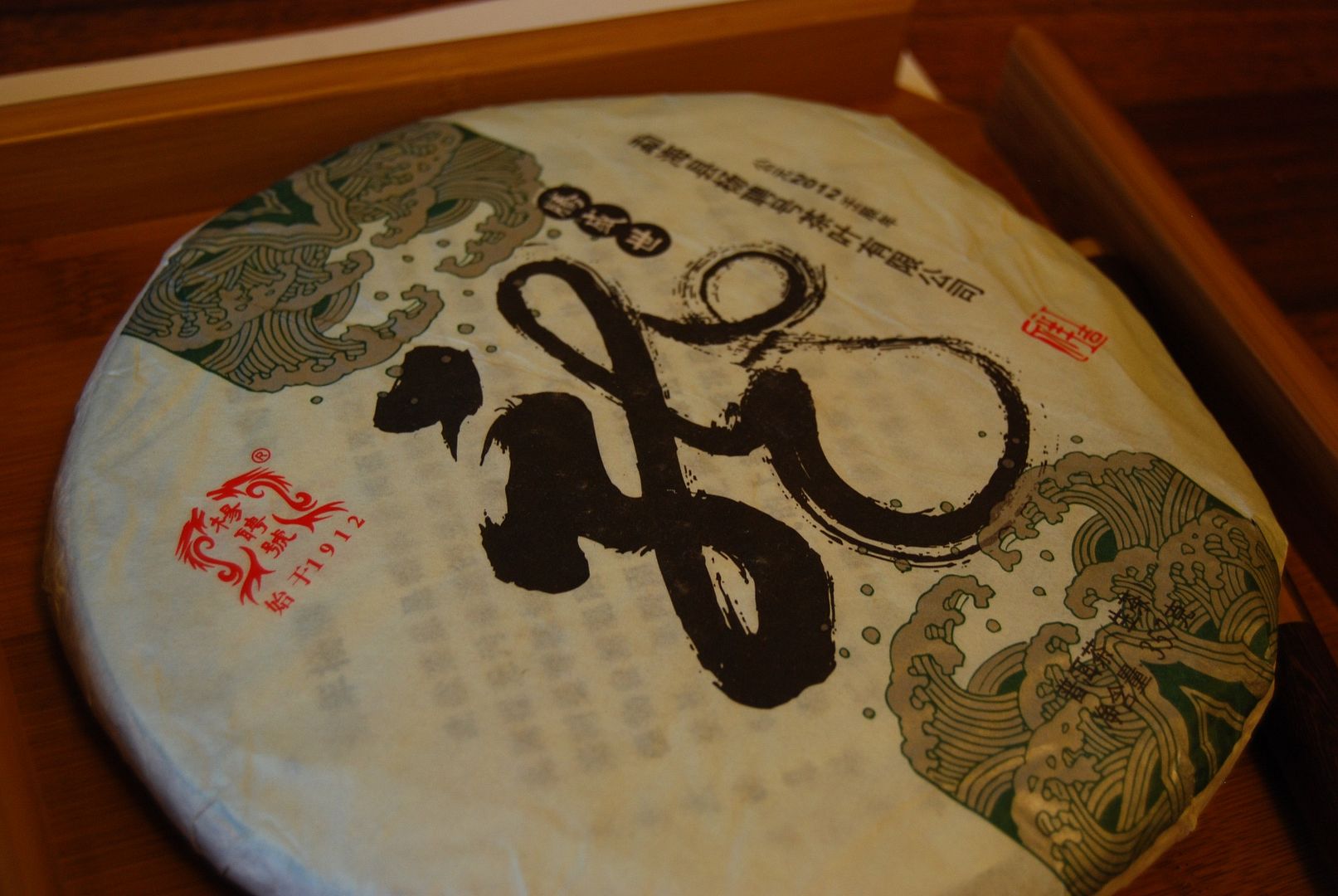
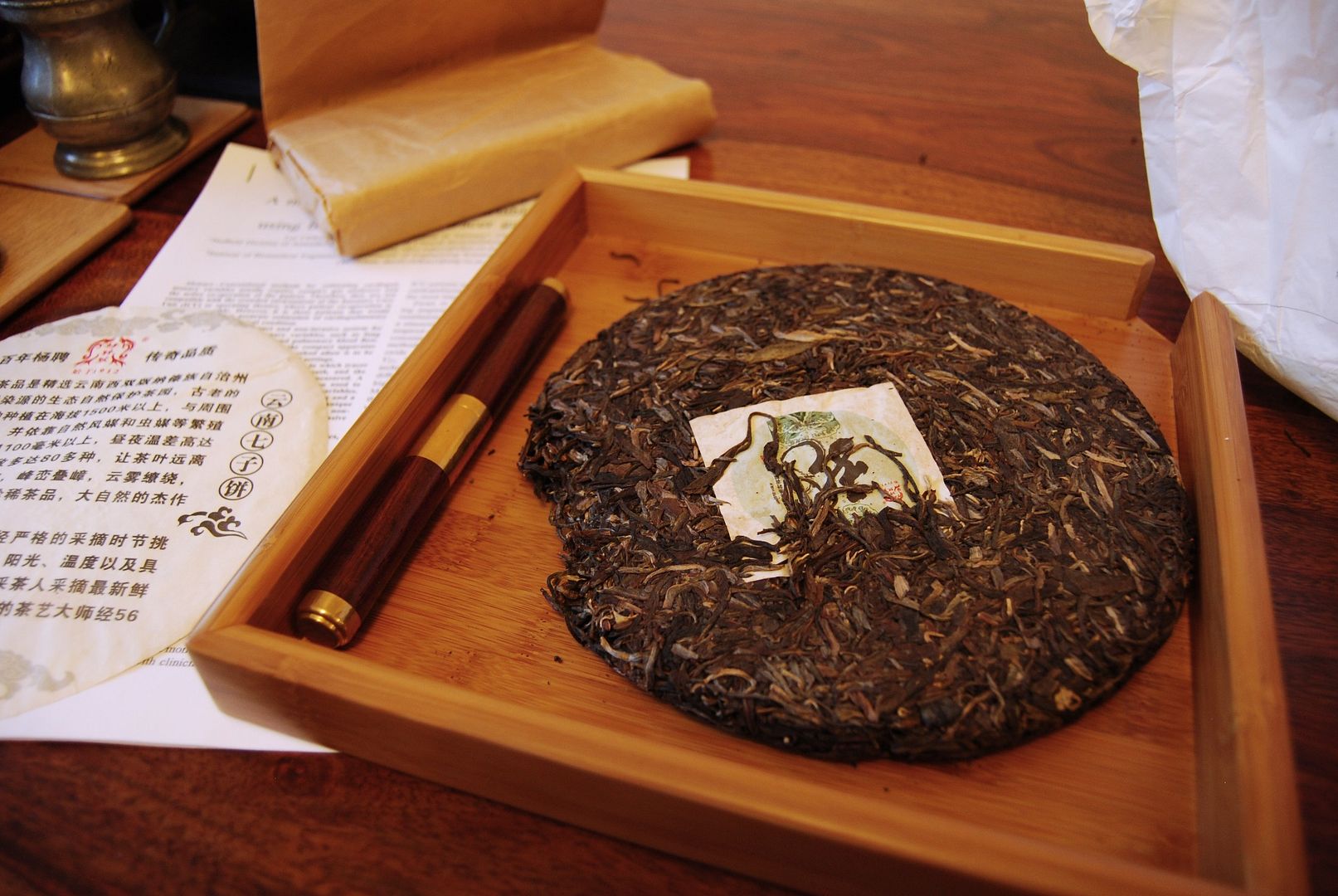
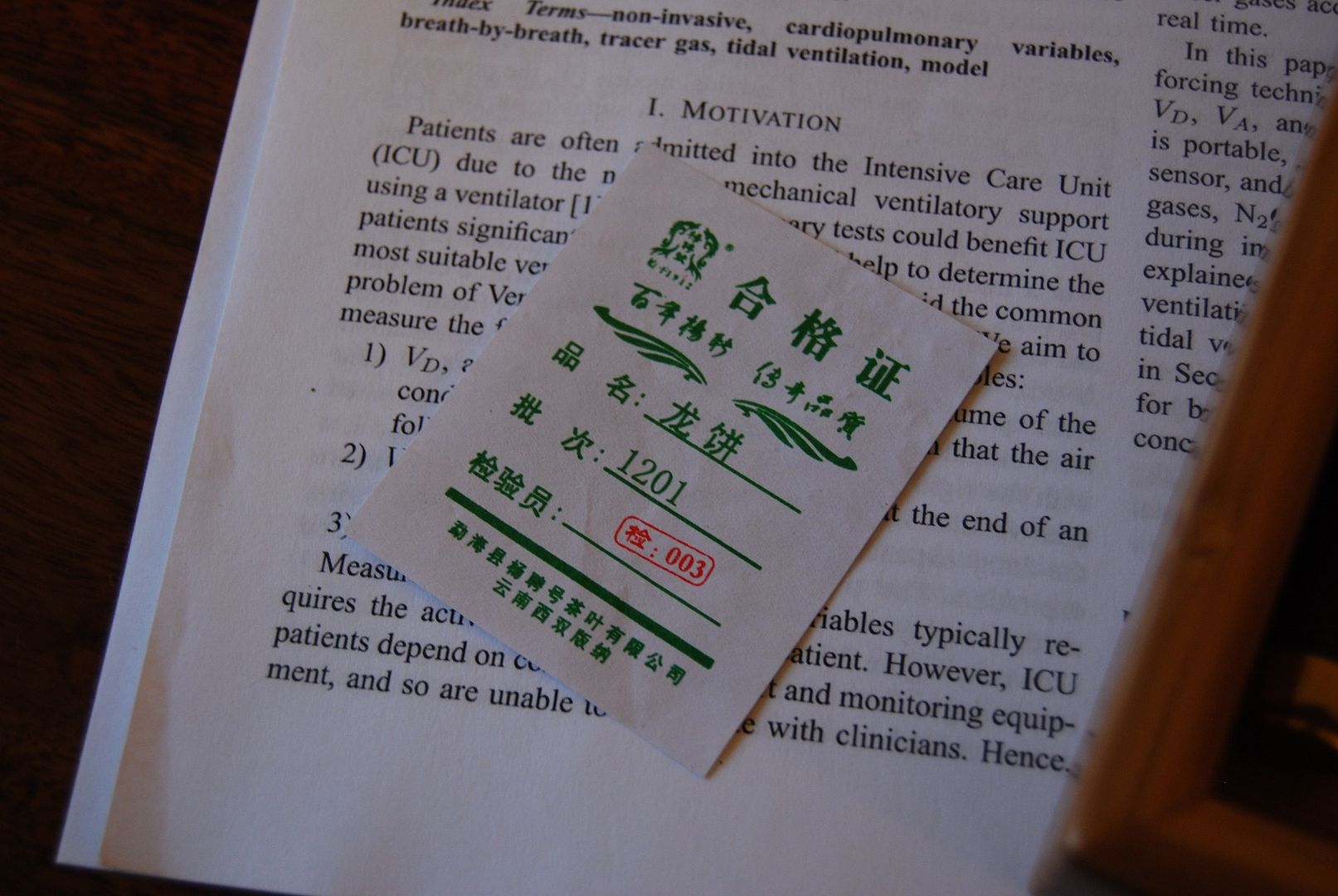
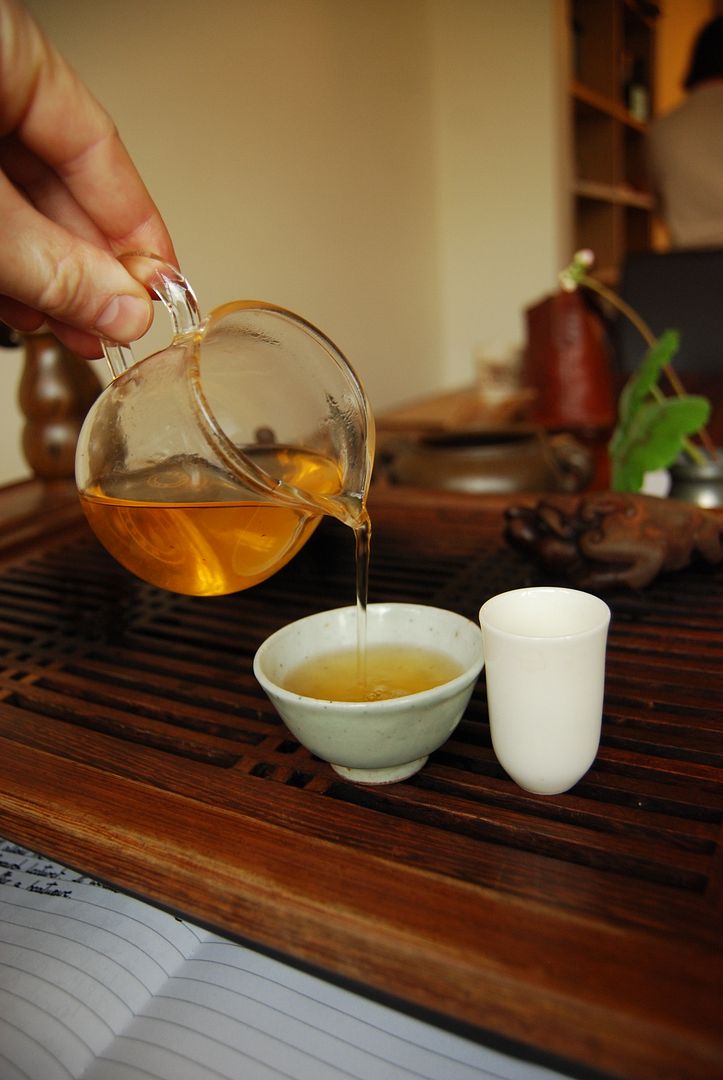
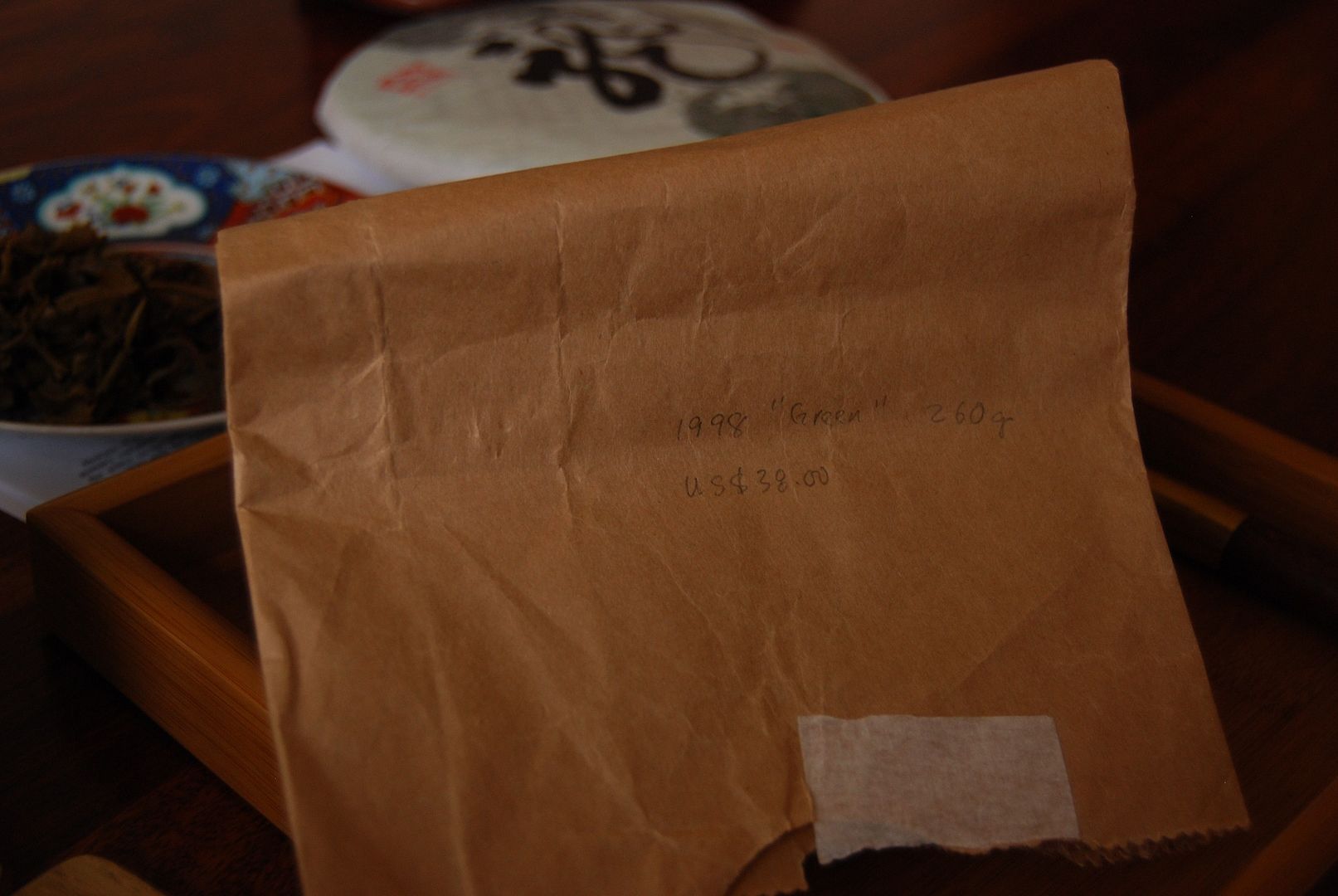
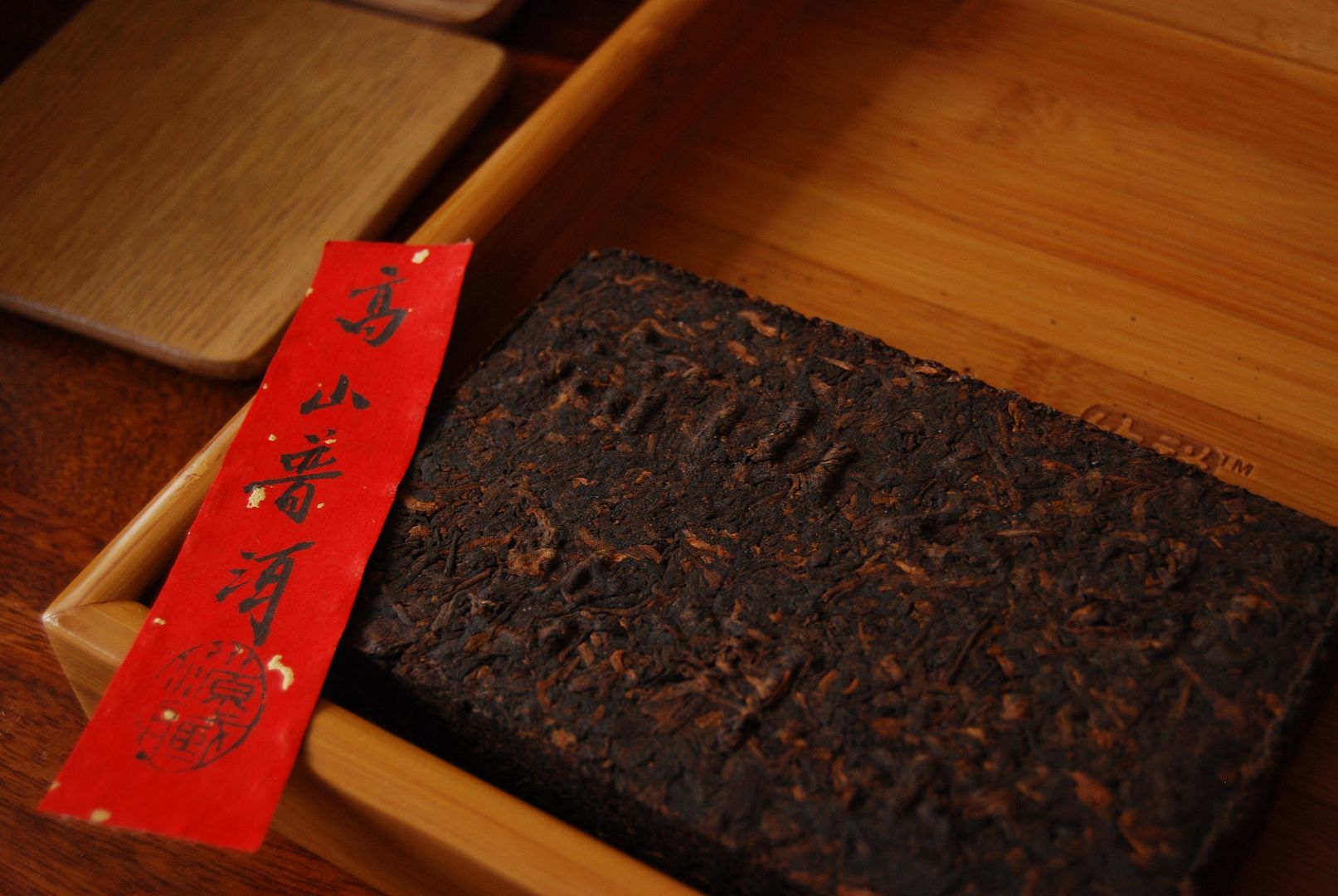
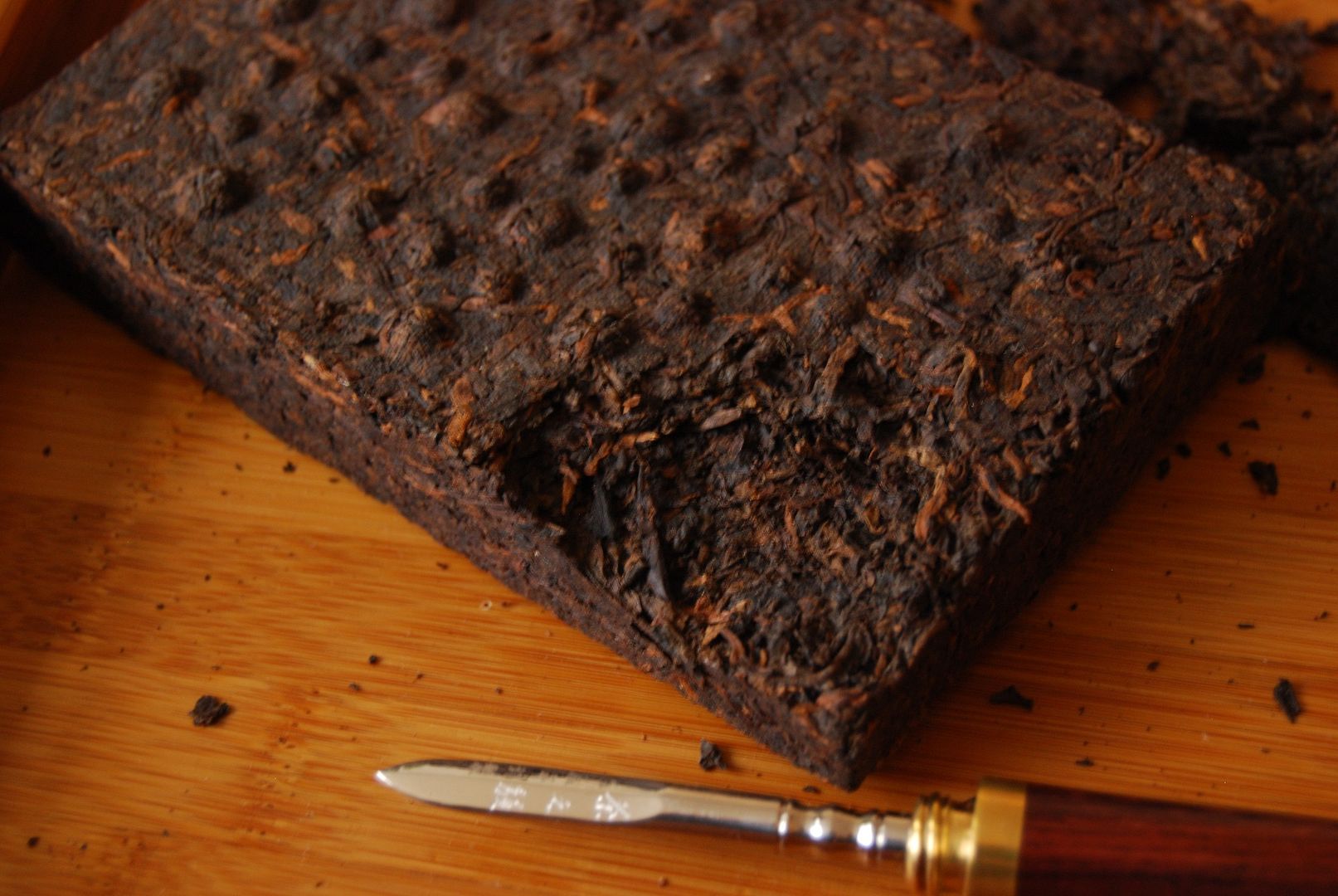
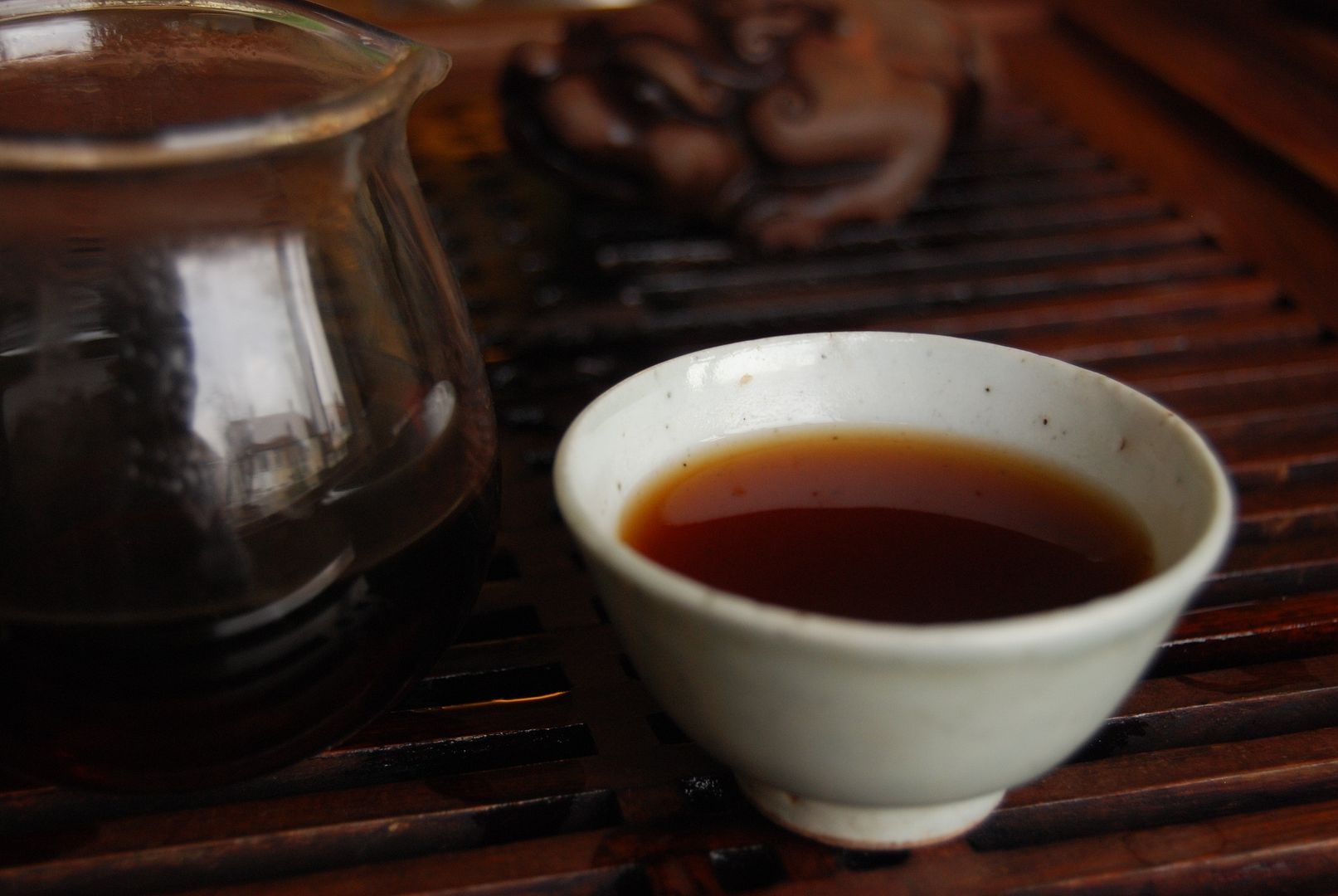
That's an interesting lecture under your neifei... :)
ReplyDeleteDear Squirrel,
ReplyDeleteWhat sharp eyes you have! It was written by my dear wife, oddly enough, which is possibly why it goes on about intensive care units and other things clinical. :)
Toodlepip,
Hobbes